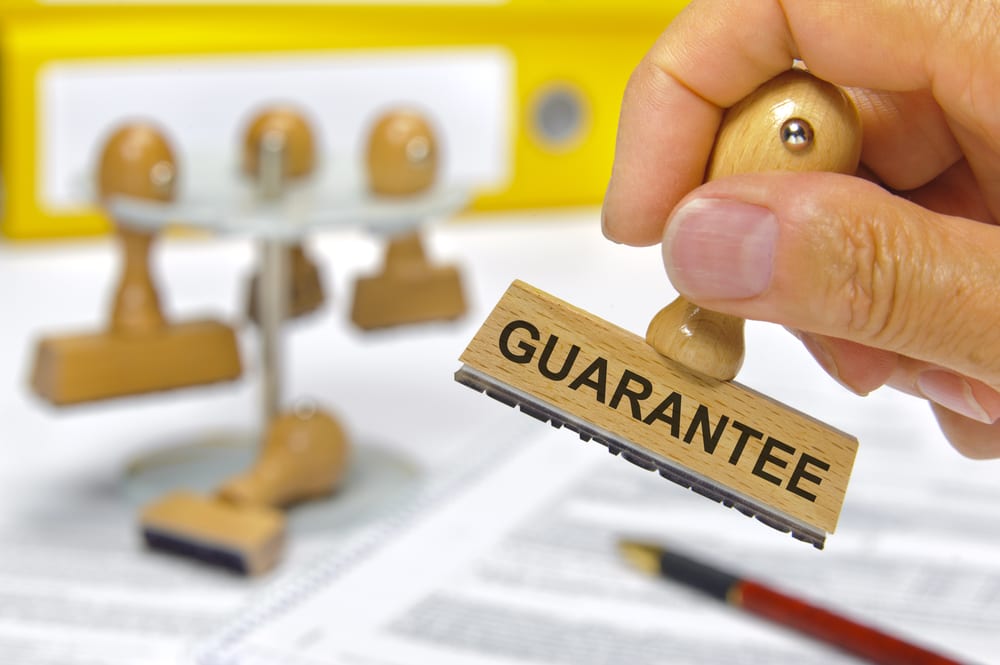When you are setting up your new business it is understandable that a number of suppliers might be worried that you will not be able to pay them if things go wrong. Consequently, they may ask you for a personal guarantee against any loss.
The most common time for such guarantees are those where there is little recourse by the supplier if things go wrong. What I mean by this is where you may rent a machine/car or even a rent a premises. In effect, this is where you are being loaned the use of a property, an overdraft or the use of car. Another way to put it is where you are asking for credit. So, for instance, if you are buying products on account then you may need to guarantee that if the business fails to pay then you will pay personally.
Is this a good idea?
In many cases it is simply unavoidable. Landlords often ask for personal guarantees. A business may enter into a lease contract for a 3 year period but if the business is not a success they may ask that you guarantee the rent. Bank overdrafts and loans to the business are also often guaranteed personally. In essence it appears to lower the risk to the lender or landlord as many new small businesses fail in the first couple of years.
Generally, if you offer a personal guarantee be aware that it is personal. I know this sounds obvious but so often we are asked that if the business goes into liquidation is my guarantee now null and void. How can I guarantee the debts of a company that no longer exists I suppose is the logic. Unfortunately, that is the point if it no longer exists then the debt moves to you as guarantor.
Be aware that if you jointly guarantee a debt, i.e. a husband and wife team then if one disappears, or cannot pay, then the other is responsible for the WHOLE not just half the debt. This can be particularly scary in the situation of a partnership and not a company as in effect each of the partners is guaranteeing the whole of the debt. This is known as joint and several liability, more on that in my next blog.
Can you get out of a personal guarantee?
Yes by agreement of course. If the business is doing well then it might be a good idea to try and get the guarantee lifted in exchange for better payment terms or similar as you never know what is round the corner and if your business is taking out bigger orders or renting bigger premises why shoulder the risk personally if things suddenly go wrong.
If things go wrong do I have to pay?
Yes most of the time? It may be argued that the terms were unfair or you were pressured into to guaranteeing things. However that is unlikely to succeed. The best option is to negotiate. It is often best to offer a sum of money and then negotiate. It might be very expensive/time consuming to try and sue you personally for the balance and so they will do a deal.
These guarantees are common in business but if you find that you are having to give lots of personal guarantees in lots of areas of business then you should ask yourself if this is a good idea. It is worth examining why they are asking. Do they know something about your business or chance of failure that you do not know?
Images: ”rubber stamp in hand marked with guarantee/ Shutterstock.com“
__________________________________________________________________________________
 Connect with Tweak Your Biz:
Connect with Tweak Your Biz:
Would you like to write for Tweak Your Biz?
Tweak Your Biz is an international, business advice community and online publication. Today it is read by over 140,000 business people each month (unique visitors, Google Analytics, December, 2013). See our review of 2013 for more information.
An outstanding title can increase tweets, Facebook Likes, and visitor traffic by 50% or more. Generate great titles for your articles and blog posts with the Tweak Your Biz Title Generator.


 Connect with Tweak Your Biz:
Connect with Tweak Your Biz:

